THE 56th international conference of horseracing authorities, organized by the International Federation of Horseracing Authorities (IFHA), was held on Monday in Paris, the day after the running of the Group 1 Qatar Prix de l’Arc de Triomphe.
After two years of convening virtually due to the Covid-19 pandemic, the in-person gathering was focused on reuniting members, highlighting the work of the Federation, and acquainting the industry and the many international delegates present on key current and future issues.
The first international conference of horseracing authorities was hosted by the Société d’Encouragement in Paris on October 9th, 1967. Since 1994, the annual conference has been organized by the IFHA at France Galop. The Japan Racing Association became the official partner of the conference last year.
The first meeting had 14 attendees from nine countries, while Monday’s gathering saw delegates from more than 40 different countries present, with a number of other racing executives, stud book authorities and some media representatives in attendance. The day’s host of the ceremony was Rishi Persad.
The Hong Kong Jockey Club’s Winfried Engelbrecht-Bresges, chair of the IFHA, highlighted in his opening remarks the key challenges and opportunities confronting the industry, including the issues of integrity and fan engagement, which were also reflected in the conference’s programme.
“Integrity lies at the foundation of our sport and must inform every decision that we make,” he said. “The pandemic has inherently changed the way that fans and punters enjoy and participate in horse racing. A good digital customer experience is key, and the general trend of digital evolution further emphasizes that all industry players need to adapt quickly to emerging technologies and behaviours.”
Broaden appeal
Throughout the day, topics that were presented included the Horseracing Integrity and Safety Authority (HISA) in the United States, broadening horse racing’s appeal globally, addressing climate change through sport, and learnings from the pandemic.
Commenting on HISA, Engelbrecht-Bresges said: “The introduction of HISA represents a monumental shift in the regulatory approach to racing in the US. Clearly, the Federation welcomes this approach, as it strives to pursue its key objective of international harmonisation of racing rules. It is significant that the US authorities have taken reference to the international agreement in the development of their regulations, demonstrating the impact and influence of the Federation in shaping and supporting the highest standards of integrity in all jurisdictions.”
“The American Jockey Club will continue to use our human and financial resources to protect the integrity of the game and to grow the sport,” said Stuart S. Janney III, chairman of the US Jockey Club, during the conference’s first session. “We enthusiastically support the work of HISA.”
Lisa Lazarus, CEO of HISA, then provided an overview of the establishment and work of HISA, its current challenges, and its future plans.
NSA’s superstar Parker on keeping it simple
AN interview by Rishi Persad with Tony Parker focused on fan engagement. It was followed by a panel presentation and discussion featuring Emmanuel Vacher, the chief marketing officer of the French PMU, and Julien Levilain, director of Buzzman, the advertising agency responsible for a number of PMU campaigns. They spoke of innovative ways to widen interest in the sport.
“Everyone, the vision they have of horse racing is that it’s for billionaires,” said Parker. “They think normal people can’t come into the horse world. It really is the total opposite. How can we change that image and get everyone involved?
“Use social media and try to do different stuff. I want to bring something different and try to make it more fun for younger people to come and watch horse racing.
“My friends, because I am on social media, they are like, ‘okay, how do you go into this world?’ If you are worried about it, or you think it’s too much money, just start with 5%. Go slow and you can learn the horse world. We have to do a lot more if we want a bigger audience. You have to go to them and promote it.”
A later panel was made up of Clarisse Magnin-Mallez, senior partner at McKinsey, and Brant Dunshea, the British Horseracing Authority’s chief regulatory officer and project executive sponsor for the report on environmental sustainability in British horse racing, and they spoke on climate change.
“Global interest on sustainability in sports has been following an upward trend, even before Covid-19,” said Magnin-Mallez. “The sporting industry has a unique opportunity to shape a credible story of sustainability. They need to enable consumers to make the right choice, even though financially it might not pay off yet.”
Covid-19 impact
The impacts of Covid-19 were discussed by Masayuki Goto, president and CEO of the Japan Racing Association (JRA), Vee Moodley, the chief executive officer of the National Horseracing Authority of Southern Africa, and Daniel Krüger, managing director of Deutscher Galopp e.V. in Germany.
“The most important thing JRA has experienced through the pandemic is that the value chain of the racing cycle must not stop,” said Goto. “If any one of the cycles of breeding, breaking, training and racing is missing, the whole wheel comes to stop. So, racing authorities need to give priority on how to keep this cycle running and to take appropriate measures according to the situation.”
Near the end of the conference, Carly Dixon from Racing Victoria, presented on the upcoming 39th Asian Racing Conference which will be held in Melbourne in February 2023.
During the general assembly held in advance of the public participation, Winfried Engelbrecht-Bresges took the opportunity to commend the Laboratory of Racing Chemistry (LRC) in becoming the sixth IFHA reference laboratory, with a presentation of the appointment certificate to Masayuki Goto who accepted on behalf of the LRC.
Finally, the conference paid tribute to Queen Elizabeth II. As one of the sport’s finest ambassadors, she was an ardent supporter of international racing and visited many of the world’s greatest racecourses.
What do they do?
THE IFHA is the global leader for the international sport of thoroughbred racing, seeking to promote all facets of the worldwide sport, protect the welfare of the equine and human athlete, and protect and grow its global social and economic significance for current and future generations.
Major areas of the IFHA’s activities include making and amending the International Agreement on Breeding, Racing and Wagering, developing policies relating to welfare and safety of horses and riders, looking after international race-planning and grading (blacktype), producing world rankings, being a leader in the fight against equine prohibited substances and practices, harmonizing racing rules, certifying IFHA reference laboratories, and fostering commercial development of the racing industry globally.
The IFHA is a foundation member with Fédération Equestre Internationale of the International Horse Sports Confederation and is affiliated to the World Organisation for Animal Health.
www.ifhaonline.org
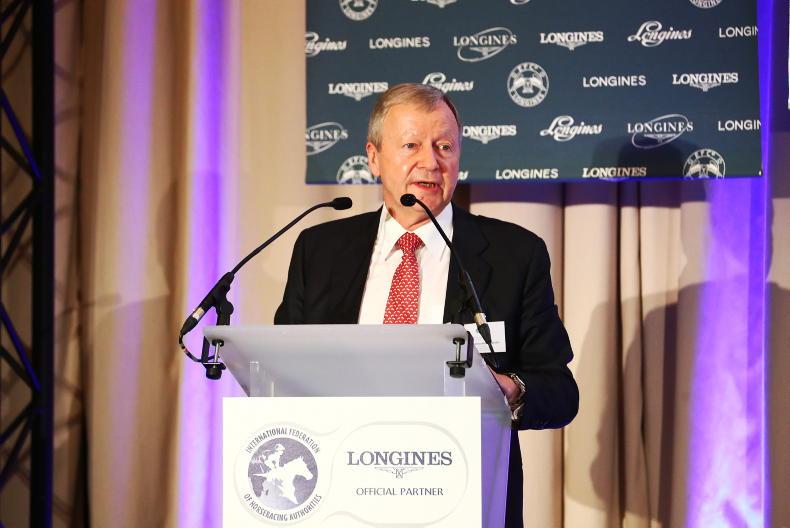

 This is a subscriber-only article
This is a subscriber-only article
 It looks like you're browsing in private mode
It looks like you're browsing in private mode




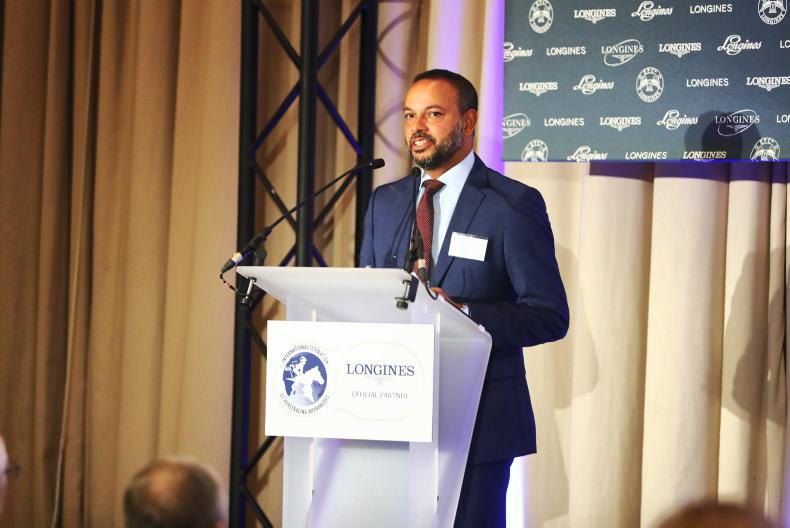
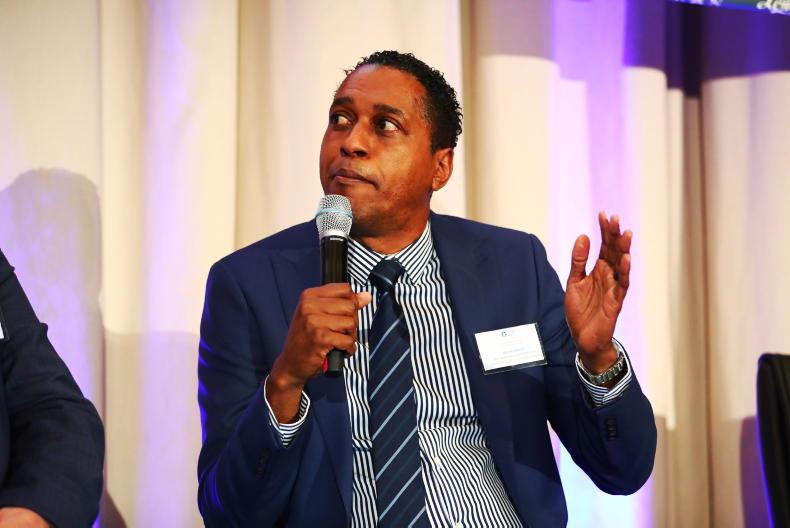
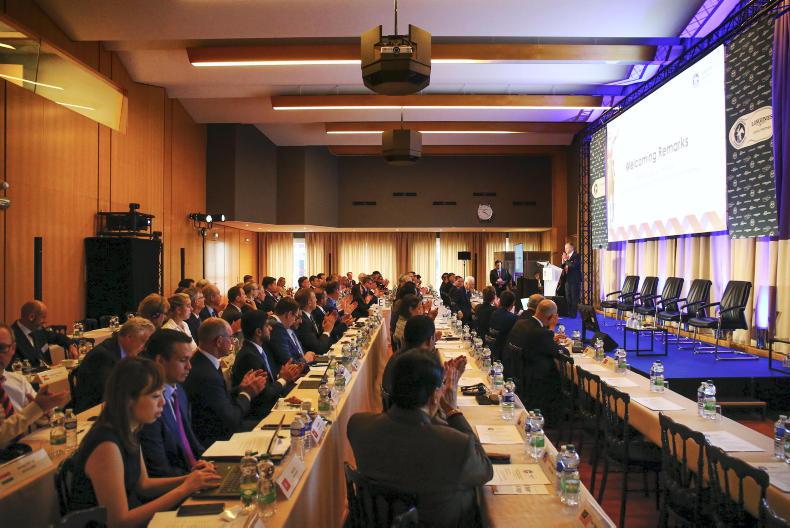


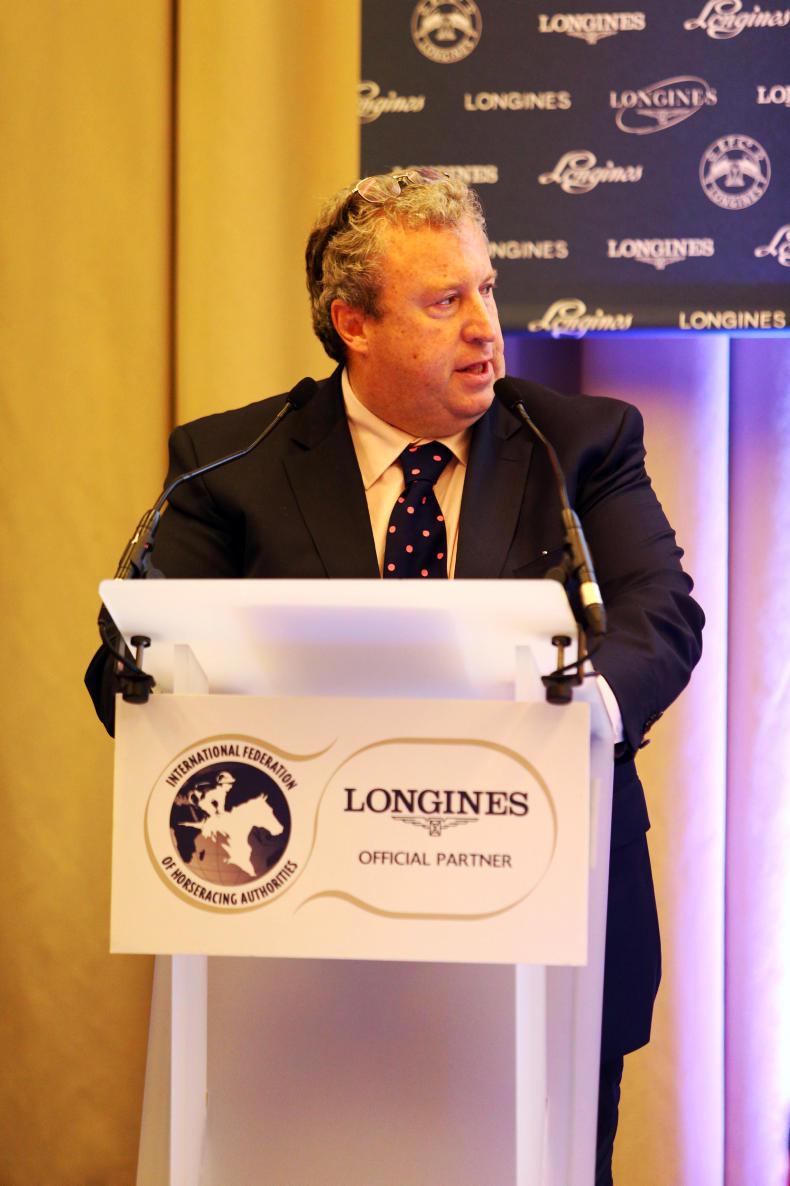

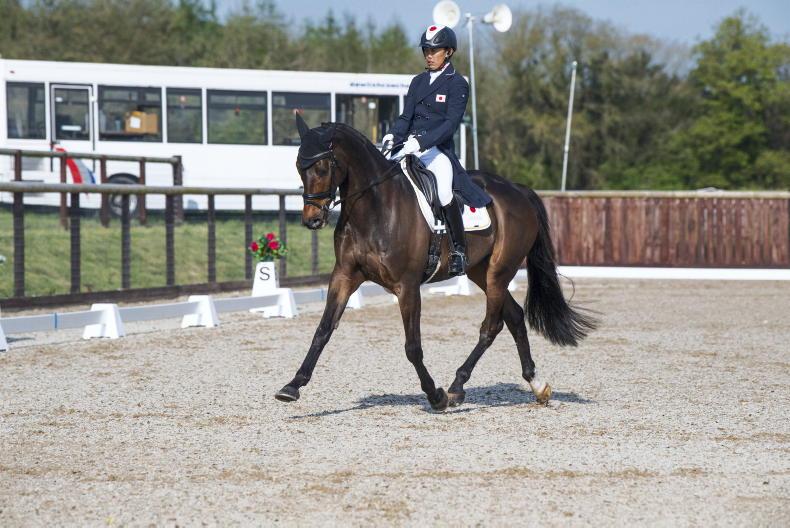
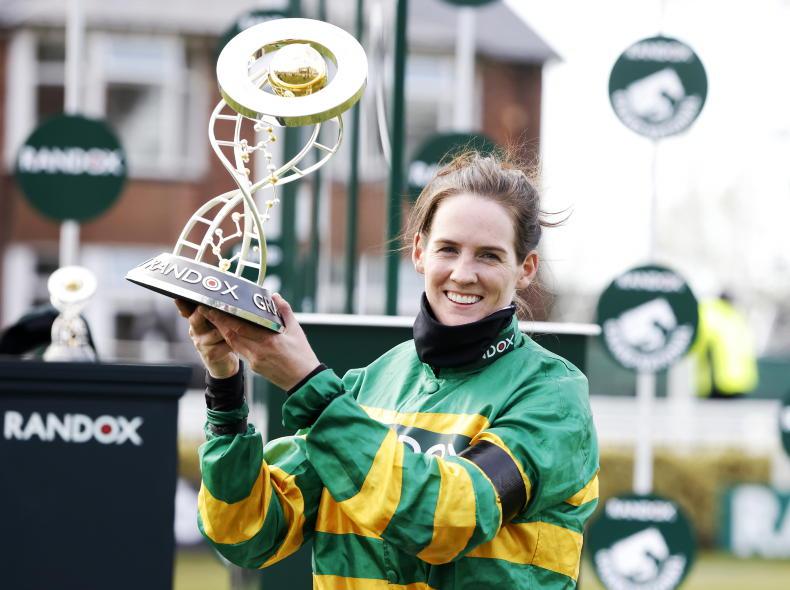
SHARING OPTIONS: